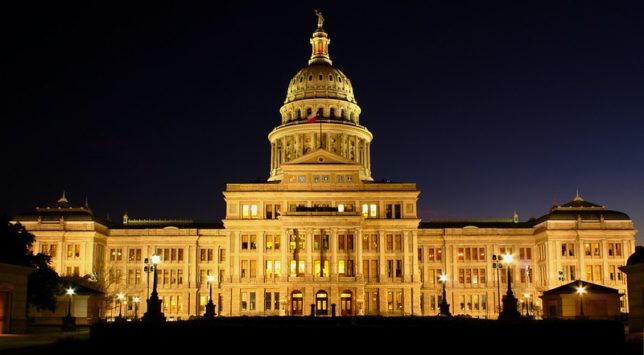Organization Trends
Texas Takes a Baby Step Toward Election Integrity
 Texas State Capitol. Credit: Kumar Appaiah. License: Creative Commons.
Texas State Capitol. Credit: Kumar Appaiah. License: Creative Commons.

Following the lead of several other states in the wake of the 2020 election (and the public distrust of elections that ensued), Texas passed its own legislation restricting the use of private money in elections.
CTCL Influence in 2020
According to research conducted by Capital Research Center, the Center for Technology and Civic Life (CTCL) gave $33.5 million to Texas county election offices across 117 different counties. Election administrators in these counties applied for CTCL grants and used the money for COVID-19 safety measures including drive-thru voting, mail voting sorting assets, polling place rental expenses, labor expenses and hazard pay, personal protective equipment, and voter education and outreach.
The most money (over $15 million) was granted to Dallas County, and the smallest amount was just over $47,000 given to Maverick County. While CTCL claims the money was purely for COVID-19 relief for elections offices, Public Interest Legal Foundation tracked the 14 counties with the most significant donations from CTCL and found that blue-leaning counties received far more COVID-19 aid than red-leaning counties. Public Interest Legal Foundation also found that the total amount of money granted by CTCL in Texas could be over $36 million.
CTCL-funded counties gave President Joe Biden 69 percent of his Texas votes and former President Donald Trump only 25 percent of his votes. Of the $33 million to $36 million donated to various Texas counties, counties that voted for Trump received about $0.55 per capita from CTCL, while counties that voted for Biden received an average of $3.22 per capita.
In addition to the $350 million Mark Zuckerberg donated to CTCL, the nonprofit is also funded by left-leaning funding organizations like the Democracy Fund, Knight Foundation, and Rockefeller Brothers Fund.
Texas House Bill 2283
Governor Greg Abbott signed HB 2283 on June 12, 2021. The bill prohibits the joint elections commission, county elections commissions, and county elections boards from accepting private donations of $1,000 or greater without the written consent of the secretary of state. Before giving consent, the secretary of state must get the unanimous approval of the governor, lieutenant governor, and the speaker of the house of representatives. Donations less than $1,000 need only the written consent of the “relevant political subdivision.” While HB 2283 decreases the influence of private funding on elections, it does not fully ban private funding in elections altogether. Six other states have already passed laws fully banning “Zuck Bucks,” so why is Texas holding back?
With as much private money as flowed into Texas during the last election, it is not surprising that a bill like HB 2283 passed. The surprise is that Texas passed one of the weakest bills banning private funding in elections.
HB 2283 limits the amount of money that groups like CTCL can donate to Texas counties. It is a fine solution while those in power in Texas are staunchly opposed to private funding in elections. However, if Texas is one day run by politicians who support private funding in elections, HB 2283 will do little to protect Texas elections.
When compared with bills passed in other states, Texas’s HB 2283 falls short. Arizona, Florida, Georgia, Idaho, North Dakota, and Tennessee all passed laws fully banning private funding in elections. Unlike Texas, these states left no loopholes for future administrations and election officials to abuse.
HB 2283 falls short not only of the standard set by other states but also of expectations the Republican Party of Texas (RPT) created for the 2021 session. In 2020, RPT established election integrity reform as a top priority for the 2021 legislative session. The omnibus bill (SB 7/HB 6) of election reforms did not get through both the Senate and the House before the end of the 2021 session. As a small consolation prize, Texans must satisfy themselves with HB 2283 among several other smaller bills that touch on election integrity.
Admittedly, HB 2283 is a first step, a response to the 2020 election rather than a means to protect future elections. While public scrutiny into CTCL’s influence over the 2020 election may prevent it from interfering in future elections, it is probably too weak to prevent other organizations from doing the same in 2022 or 2024.
Political Theater
A second bill (HB 3) has since become the focus of a political circus, with Texas House Democrats fleeing the state to prevent the quorum required to vote on legislation.



